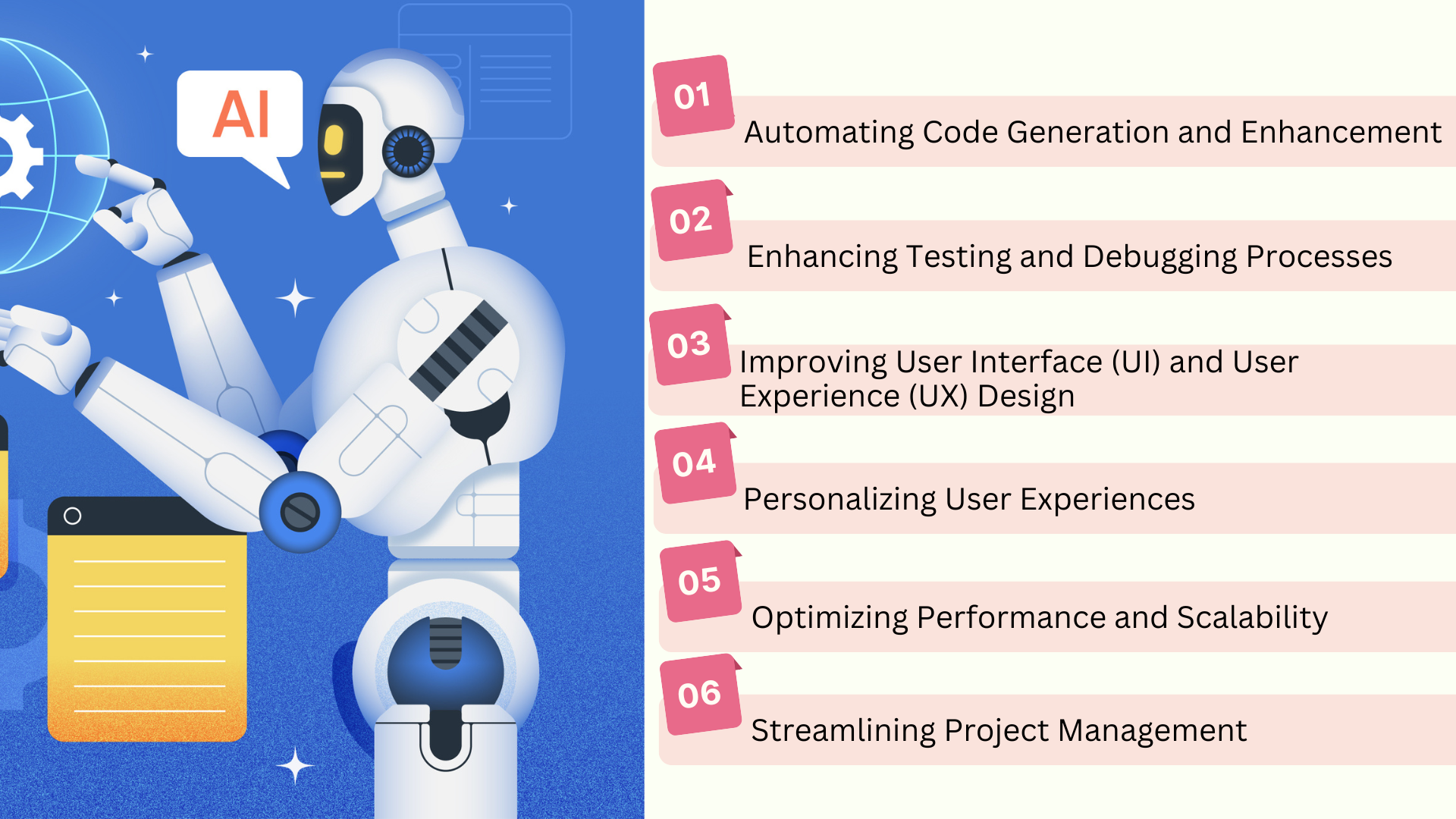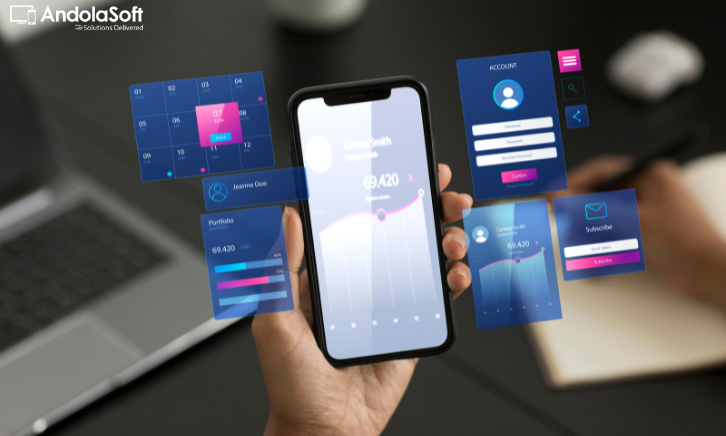In the rapidly advancing realm of technology, staying ahead of the curve is crucial for developers working on web and mobile applications development.
The demand for faster, more efficient, and highly responsive applications is greater than ever. Enter Artificial Intelligence (AI) — a game-changer that is revolutionizing the way applications are developed, tested, and maintained.
AI tools are not just augmenting human capabilities; they are transforming the entire development lifecycle, from code generation and debugging to user experience enhancement and project management. This blog explores how developers are harnessing the power of AI to optimize web and mobile applications development, driving innovation, efficiency, and superior user experiences.
Contents
1. Automating Code Generation and Enhancement
AI-powered tools can significantly reduce the time and effort required to write and enhance code. By automating repetitive tasks and providing intelligent code suggestions, developers can focus on more complex and creative aspects of web app development and mobile app development.
Key Benefits:
- Speed: Rapidly generates standard code blocks, reducing development time.
- Precision: Minimizes human error in repetitive coding tasks.
- Focus: Allows developers to concentrate on higher-level design and problem-solving.
Tools to Explore:
- GitHub Copilot: Provides context-aware code suggestions, automating code writing for various programming languages.
2. Enhancing Testing and Debugging Processes
AI has revolutionized application testing and debugging by making these processes more efficient and thorough. AI-driven testing tools can automatically generate test cases, detect bugs, and even predict potential issues in the code.
Key Benefits:
- Thoroughness: Conducts comprehensive testing with diverse test cases.
- Early Detection: Identifies and resolves issues early in the development cycle.
- Cost-Effective: Reduces the need for extensive manual testing, saving time and resources.
Tools to Explore:
- Testim: Utilizes AI to create, execute, and maintain automated tests.
3. Improving User Interface (UI) and User Experience (UX) Design
AI can assist in designing intuitive and visually appealing user interfaces. By analyzing user behavior and preferences, AI tools help create designs that are not only aesthetically pleasing but also user-friendly.
Key Benefits:
- Consistency: Ensures uniformity in design elements across the application.
- Innovation: Allows designers to focus on creative tasks by automating routine design activities.
- User-Centric: Leverages data-driven insights to enhance user experience.
Tools to Explore:
- Sketch2Code: Converts hand-drawn sketches into HTML code using AI.
- Figma with AI plugins: Enhances design capabilities with AI-powered suggestions and automation.
4. Personalizing User Experiences
AI enables the creation of personalized user experiences by analyzing user data to provide tailored content and interactions. This level of personalization can significantly increase user engagement and satisfaction.
Key Benefits:
- Engagement: Delivers personalized content that keeps users engaged.
- Retention: Enhances user satisfaction, leading to higher retention rates.
- Insights: Provides valuable analytics on user behavior and preferences.
Tools to Explore:
- Firebase Predictions: Uses machine learning to predict user behavior and customize experiences.
- OneSignal: Delivers personalized notifications based on user interactions.
5. Optimizing Performance and Scalability
AI can help optimize the performance and scalability of web and mobile applications by analyzing usage patterns and predicting future demands. This ensures that applications run smoothly even under high loads.
Key Benefits:
- Efficiency: Improves application performance by identifying bottlenecks.
- Scalability: Predicts and prepares for future demands, ensuring seamless scalability.
- Resource Management: Optimizes resource usage, reducing operational costs.
Tools to Explore:
- New Relic: Provides AI-driven insights for performance monitoring and optimization.
- Dynatrace: Uses AI to monitor and optimize application performance in real-time.
6. Streamlining Project Management
AI can enhance project management by providing predictive analytics, automating routine tasks, and offering insights into project progress. This helps project managers make informed decisions and keep the development process on track.
Key Benefits:
- Accuracy: Provides precise project estimates and timelines.
- Efficiency: Automates administrative tasks, freeing up time for strategic planning.
- Proactivity: Identifies potential issues before they escalate into major problems.
Tools to Explore:
- Orangescrum: Leading project management software to streamline multiple projects, tasks, teams and client communications.
Conclusion
The integration of AI tools into web and mobile applications development is transforming the industry by making processes faster, more efficient, and more user-centric.
From automated code generation and enhanced testing to personalized user experiences and optimized performance, AI provides a multitude of benefits that developers can leverage to create superior applications.
Embracing AI in app development is not just about staying ahead of the competition; it’s about delivering high-quality, innovative products that meet and exceed user expectations.
As AI technology continues to evolve, its impact on web and mobile app development will only grow, making it an indispensable part of the developer’s toolkit. Whether you’re a seasoned developer or new to the field, harnessing the power of AI is a step toward a more efficient, innovative, and user-focused future in app development. Andolasoft, the leading web and mobile app development company can craft customized solutions for your business.













